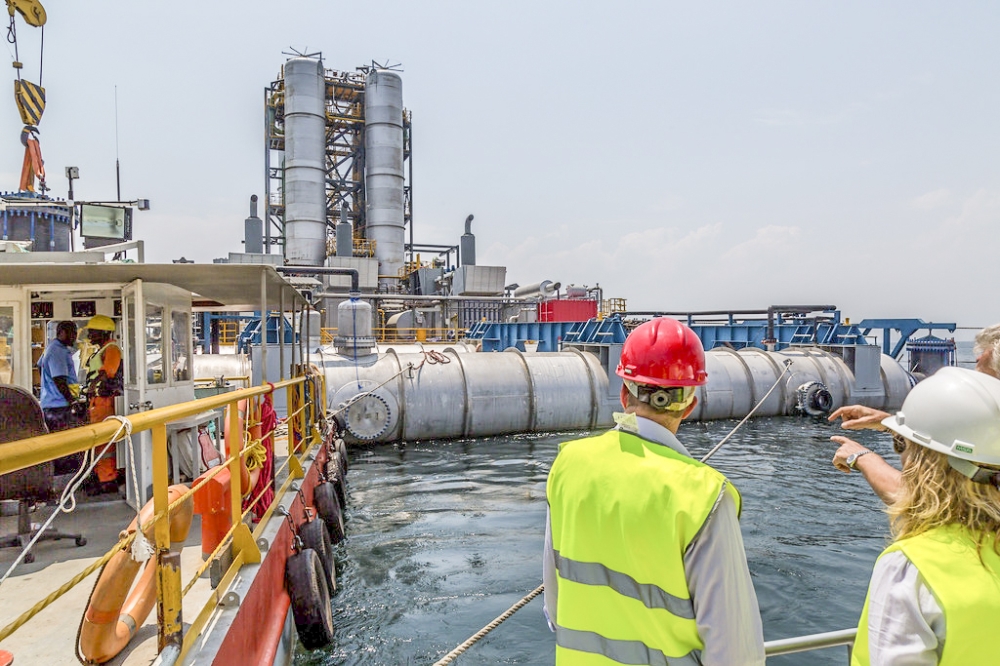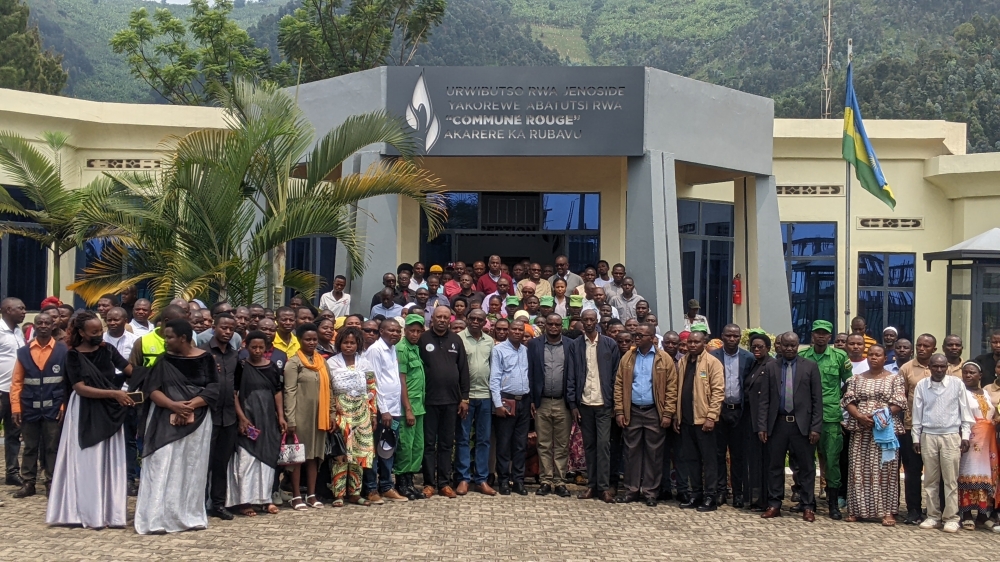Construction of a laboratory that will monitor methane gas extraction and the ecological stability of Lake Kivu is expected to be complete in November this year, officials have said.
ALSO READ: REMA reassures public over Lake Kivu methane gas safety
The officials at Rwanda Environment Management Authority (REMA) said that this will a milestone in the country’s efforts to ensure the sustainable use of Lake Kivu.
Valued at over Rwf2 billion, the facility under construction in Rubavu District is being built under the Lake Kivu Monitoring Program (LKMP). It will provide advanced tools for environmental surveillance, water and gas quality testing, and ecosystem research.
According to Eric Mudakikwa Ruhanamirindi, the environment analytics and Lake Kivu monitoring division manager at REMA, the laboratory is expected to be completed by November this year, with an official inauguration planned about a month later.
“The main objective is to ensure that methane gas extraction is conducted without harming the environment,” Mudakikwa told the Parliamentary Committee on Land, Agriculture, Livestock and Environment on Tuesday, October 21.
“This project, implemented in collaboration with the Government of the Netherlands, also seeks to align Rwanda’s domestic regulations with international monitoring standards.”
ALSO READ: Rwandans could start using methane gas for cooking in 2027
Alex Mugabo, REMA’s Single Project Implementation Unit (SPIU) Coordinator, noted that about 80 percent of construction work has been completed, though some delays were caused by financial adjustments.
“The contractor was expected to have completed the work, and we still need to inject about Rwf500 to 600 million to finalize the remaining activities, but the project is progressing well,” he said.
On the remaining budget, Mudakikwa revealed that the funds required to complete the project are already secured.
ALSO READ: Rwanda’s biggest methane power plant connected to national grid
Lake Kivu has 60-70 cubic kilometres of methane, of which 44.7 cubic kilometres can be extracted, according to official estimates. It also has a delicate ecosystem that supports fishing, recreation, and tourism.
The government emphasized that all extraction activities must be carefully managed to avoid disturbing the lake’s equilibrium, which is crucial for both environmental protection and national economic stability.
Mudakikwa highlighted that currently, Rwanda has two methane gas extraction plants, namely KivuWatt and Shema Power Lake Kivu. The third, GasMeth, is expected to begin operations soon.
ALSO READ: Major methane gas exploitation projects on Lake Kivu
“Monitoring the lake’s stability involves a multi-step process, including on-plant inspections, near-plant assessments, and lakewide ecosystem surveillance,” he added.
The upcoming laboratory will enhance these operations by providing space for staff, modern research equipment, and the capacity to conduct more sophisticated analyses on methane dynamics and water quality.
The facility will also serve as a training hub for Rwandan scientists and students in disciplines such as biology, chemistry, geology, and geography, offering access to specialized instruments not available anywhere in the Great Lakes Region.
Lake Kivu continues to attract international researchers interested in studying its complex gas layers and biodiversity.
The new lab is therefore expected to strengthen Rwanda’s partnerships with global scientific institutions while ensuring methane extraction.






